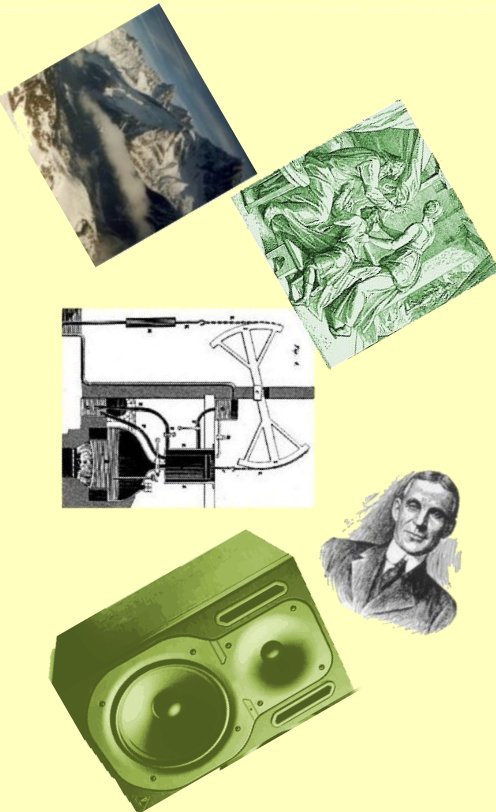On the Cutting-Room Floor
Today, let us pick up some loose ends. The University of Houston's College of Engineering presents this series about the machines that make our civilization run, and the people whose ingenuity created them.
You've all seen TV programs of comic outtakes from earlier shows. I suppose they reflect frustration -- so much good stuff you can't use but can't just leave lying on the cutting-room floor, either. I have the same problem. So many ideas just aren't enough for a full program! I'll give you some examples.
A doctor writes to me about the Bible verse where Esau returns from the hunt so faint that he sells his birthright to get some of Jacob's red pottage. He points out that Esau was not hungry but faint -- likely suffering from hyponatremia, a lack of sodium in the blood. Jacob's pottage was probably red from the salt common in the region. Genesis banned hunters from consuming salt-rich blood (as Massai hunters regularly do) to prevent hyponatremia.
So you see my problem: I have a fascinating tidbit, but not enough context either to verify it or to make a program of it. Take another such tidbit. Did you know how steam-engine-valving was first automated? A bright young boy, switching Newcomen-engine valves back in 1712, found that he could sleep on the job if he just tied the valve-cords to a moving cross-beam.
There's no end of eccentric-scientist stories, all too brief to use. Take the one about Lord Kelvin, vacationing in the alps. He finds the terribly-focused scientist James Prescott Joule, who's on his honeymoon, at the base of a waterfall near Mount Chamonix. Joule carries a huge thermometer while his bride waits in a carriage above. He's trying to learn whether the water is warmed by the energy given up during its long fall.
Stories like that one follow inventive people around because their minds don't go where we expect them to go. Of course, that can lead to mischief. I knew an off-the-wall electrical engineer who mounted a huge set of loudspeakers under his car's hood. Then he drove down the road, playing his own superb recording of an oncoming steam locomotive moving under full power. He laughed fiendishly as he told of terrified drivers lurching into the ditch.
Most of these unused fragments have the same anecdotal texture as a joke. Henry Ford told of an efficiency expert who complained about a fellow down the hall, sitting with his feet on the desk. Ford replied, "That man once had an idea that saved me a million dollars. When he got it, his feet were right where they are now."
But what idea? What employee? So many incomplete stories, so much to tease us! Sometimes we just don't have what Paul Harvey calls "the rest of the story." We have only the suggestive beginning. Did you know that Enrico Caruso was a fine cartoonist -- that John Adams boasted about the quality of the manure on his farm?
I shudder every time I find one more of these fragments: too little to tell, too troublesome to verify, too delightful to ignore. Perhaps the only thing to do with these outtakes is to savor them -- and then make up the rest of the story ourselves.
I'm John Lienhard, at the University of Houston, where we're interested in the way inventive minds work.
(Theme music)
This is a greatly revised version of Episode 169.
I'm grateful to pediatric hematologist Dr. Avner Ramu for pointing out the possible ramifications of the story of Jacob and Esau in Genesis 25:29-34.
